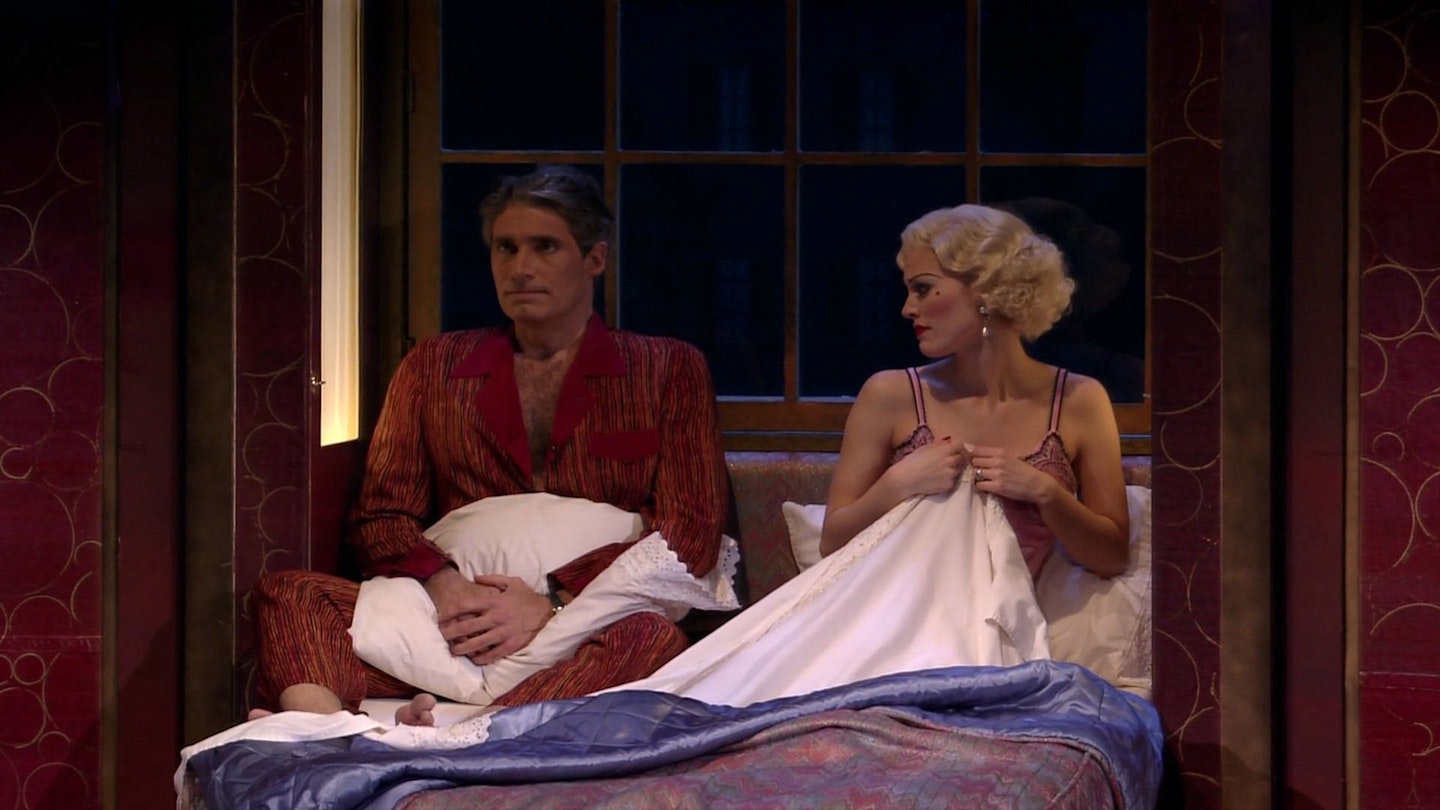In its heyday, the musical had been very much a cosy form of family entertainment. However, by the 1980s, a yen for the genre had become stereotypically synonomous with homosexuality. Consequently, Blake Edwards chose to stress the gay element that had lain dormant in previous adaptations of Viktor Und Viktoria in this calculating reworking that owed as much to Edouard Molinaro's La Cage Aux Folles (1978) as to Reinhold Schünzel's 1933 screwball musical.
Although Renate Müller still cross-dressed her way to celebrity in the original scenario, she got her break as a secret replacement for female impersonator Hermann Thimig. Moreover, London lothario Adolf Wohlbrück quickly discerns her true identity and puts her through a hellish macho initiation before declaring his love. In 1934, Victor Saville stuck closely to this storyline in tailoring it as First A Girl for Jessie Matthews and Sonny Hale, as did Karl Anton in his 1957 version with Annie Cordy.
But Blake Edwards opted to turn Robert Preston's mentor into a gay confidante and mock James Garner's growing disquiet about his feelings through macho henchman, Alex Karras. Thus, a sniggering sense of innuendo was introduced to a situation that already had a delicious ambiguity. Moreover, Edwards and Andrews insisted on using the picture to drive another nail into her detested Mary Poppins image, although this time they resisted the resort to momentary nudity that had made S.O.B. such a succès de scandale.
Andrews and Preston landed Oscar nominations in the film's unlikely haul of seven. But both the nominated Lesley Ann Warren and the overlooked Garner are infinitely more amusing in a double act that's part Clark Gable and Jean Harlow and part an inversion of Judy Holliday and Broderick Crawford's characters in Born Yesterday.
However, the least deserving recipients were Henry Mancini and Leslie Bricusse, who won the award for Best Song with a dismal collection of ditties that even riffed on the `Lady of Seville' routine that Müller had performed with infinitely greater allure half a century before.
